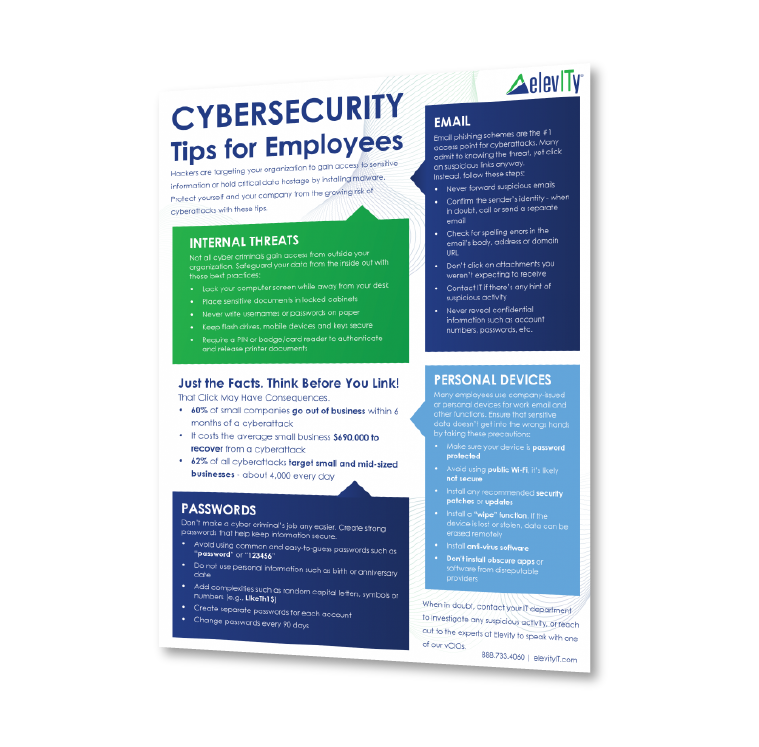For decades, pundits have warned that computers and artificial intelligence (AI) - also referred to as cognitive computing - would replace humans in the workplace. Many a sci-fi movie has depicted robots using their powers of machine learning to conquer the world. The current labor shortage should be evidence enough that such theories are woefully overstated.
On the contrary, technology is enhancing human intelligence, not replacing it. The efficiencies and production output that technology makes possible is helping to spur some of the business growth (and subsequent job growth) we've seen. In a strange twist of fate, much like in those sci-fi flicks, a solution to the skilled labor shortage - caused in part by technology - may just be more technology. And it's transforming many industries in a good way.
What is Cognitive Computing?
When you hear the term “artificial intelligence,” what comes to mind? Perhaps it’s self-driving cars or e-commerce sites that predict products you may be interested in based on your browsing history. IBM famously introduced Watson, its cognitive computing powerhouse that easily defeated its human counterparts on the Jeopardy! game show back in 2011. And our smartphones featuring voice assist and suggested text wording are examples of how machine learning has infiltrated our everyday lives.
These are all forms of cognitive computing, which uses machine learning, algorithms and AI to continually improve and make decisions on its own. Some technologies are already being leveraged to optimize business practices and minimize error-prone manual processes.
With as quickly as technology is advancing, it’s imperative for all businesses, both large and small, to embrace cognitive computing if they want to remain competitive in today’s market. Here are just a few examples of how industries are using these advanced technologies.
Examples of How Cognitive Computing Helps Businesses
Healthcare Industry
Perhaps the most promising impact of cognitive computing is in the treatment of illnesses and diseases. When it comes to leveraging the power of this technology, the more data the better. Consider the vast amounts of data in the healthcare industry, from medical journals and clinical research findings to patient information and treatment history. Many innovative hospitals and treatment centers have already begun leveraging all that data to suggest the optimal treatment regimen for cancer patients based on historical information and what has worked best in the past.
Other areas of advancement include 3D medical imaging where analytics and AI use pattern recognition to detect anomalies with greater precision than the human eye. One facility even uses predictive analytics to identify patients who are at risk of ending up in the ICU based on their monitored health status, allowing healthcare providers to issue preventative measures.
With AI and cognitive computing still in their early stages, the potential to transform the healthcare industry is extremely promising.
Retail
The retail market has already been disrupted by technology, as evidenced by many e-commerce sites and their abilities to track and predict shoppers' buying and spending habits. What used to be an issue of concern for some consumers has now become the expectation.
Applications will expand beyond recommendations based on buying history and can take conditions such as the weather and location into consideration. Smart technology may issue a notification on your smartphone regarding a sale on snowblowers when a major snowstorm is predicted in your area, or recommend a coffee shop when you visit a new neighborhood, knowing you can’t resist a good latte.
Brick and mortar shops are looking for ways to create experiential shopping opportunities for patrons in order to stand out and combat online retailers by using virtual reality, smart kiosks, robotics and more to attract, serve and retain customers.
Finance
Online banking is commonplace, but many financial institutions are taking the customer experience further by implementing smart features, such as prompting when payments are due or even cautioning against them if an account is running low on funds. Digital advisors can also provide recommendations and answer questions based on algorithms and personal data.
Behind the scenes, advanced cognitive computing minimizes cybersecurity risks by detecting disruptions in data patterns to identify potentially fraudulent transactions. Cognitive computing also helps the financial sector stay on top of changing regulation requirements, updates and various deadlines for compliance.
Customer Service
Many consumers prefer a self-service approach when looking for answers to a query or problem, and they're becoming more comfortable interacting with AI-powered bots and technology.
Chatbots are commonly used in multiple industries to answer questions or help people access information in real-time, 24/7. These services are becoming more and more life-like in their abilities to mimic personalized human interactions.
Social media monitoring also allows companies to quickly identify trends and customer preferences as well as address potential issues before they go viral and damage a company's brand.
These technologies are not reserved for major enterprises; many small and mid-sized companies are leveraging cognitive computing to remain competitive in a tight market. Reach out to the technology experts at Elevity for an assessment of your IT environment and learn ways cognitive computing can help your organization.








%20cropped.jpg)




